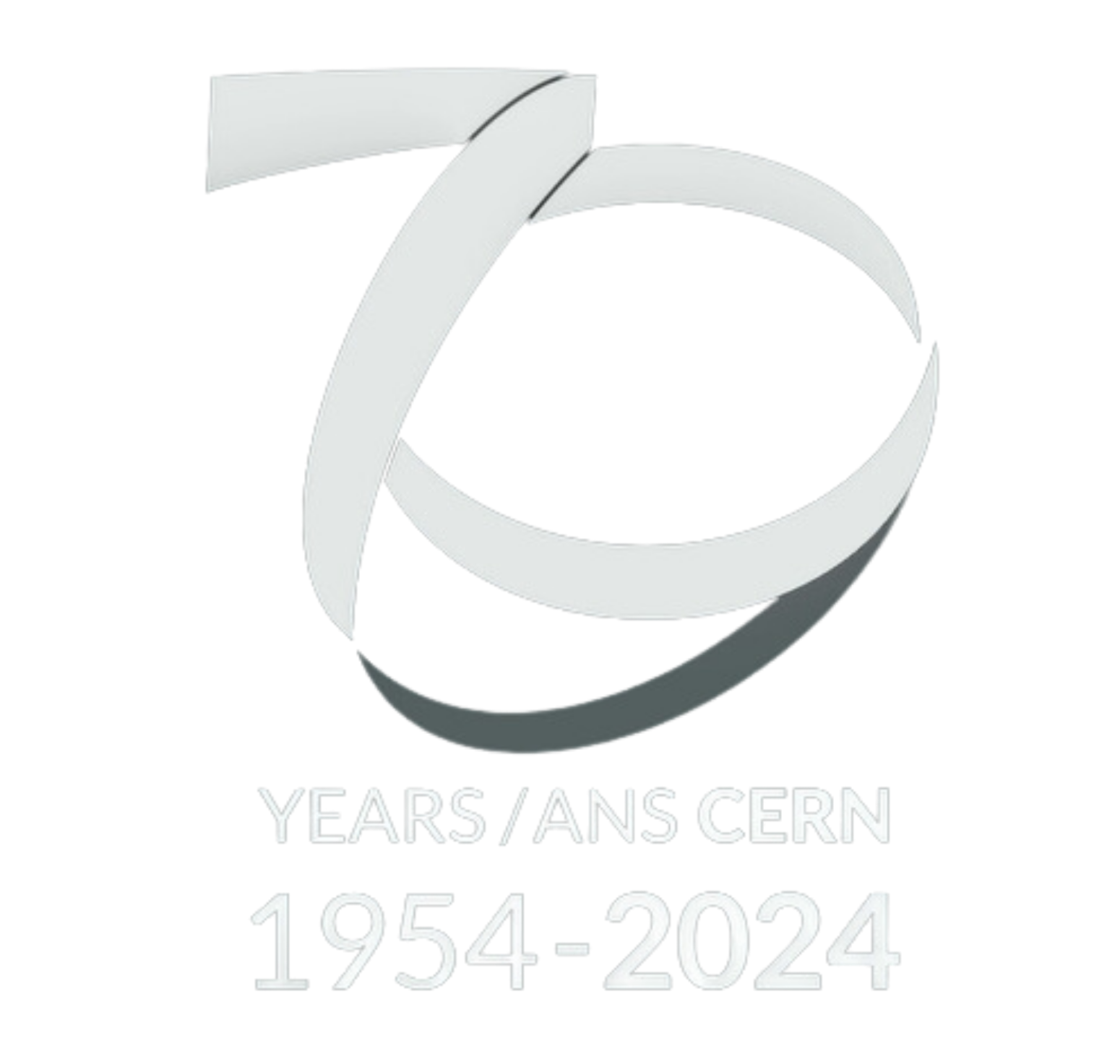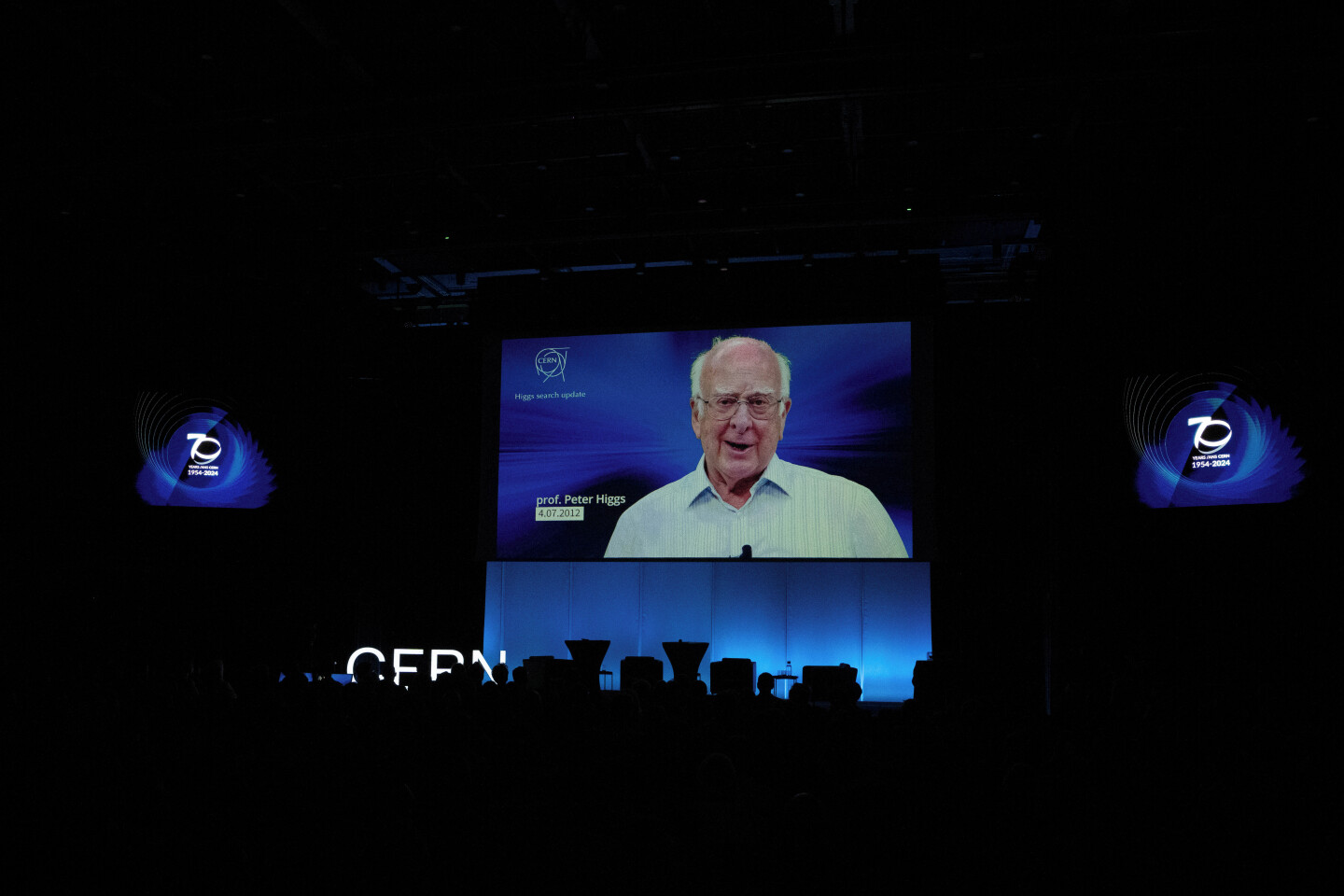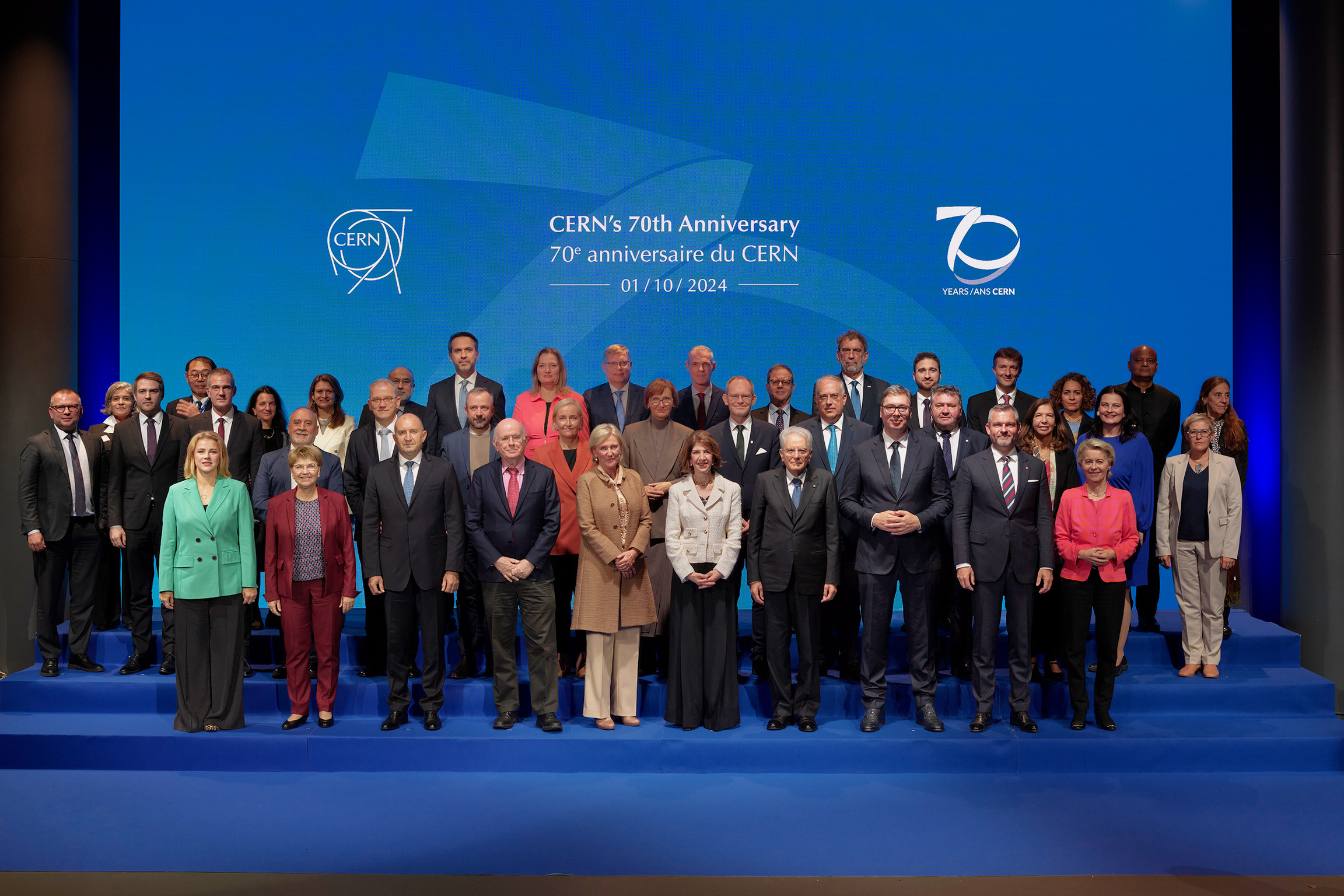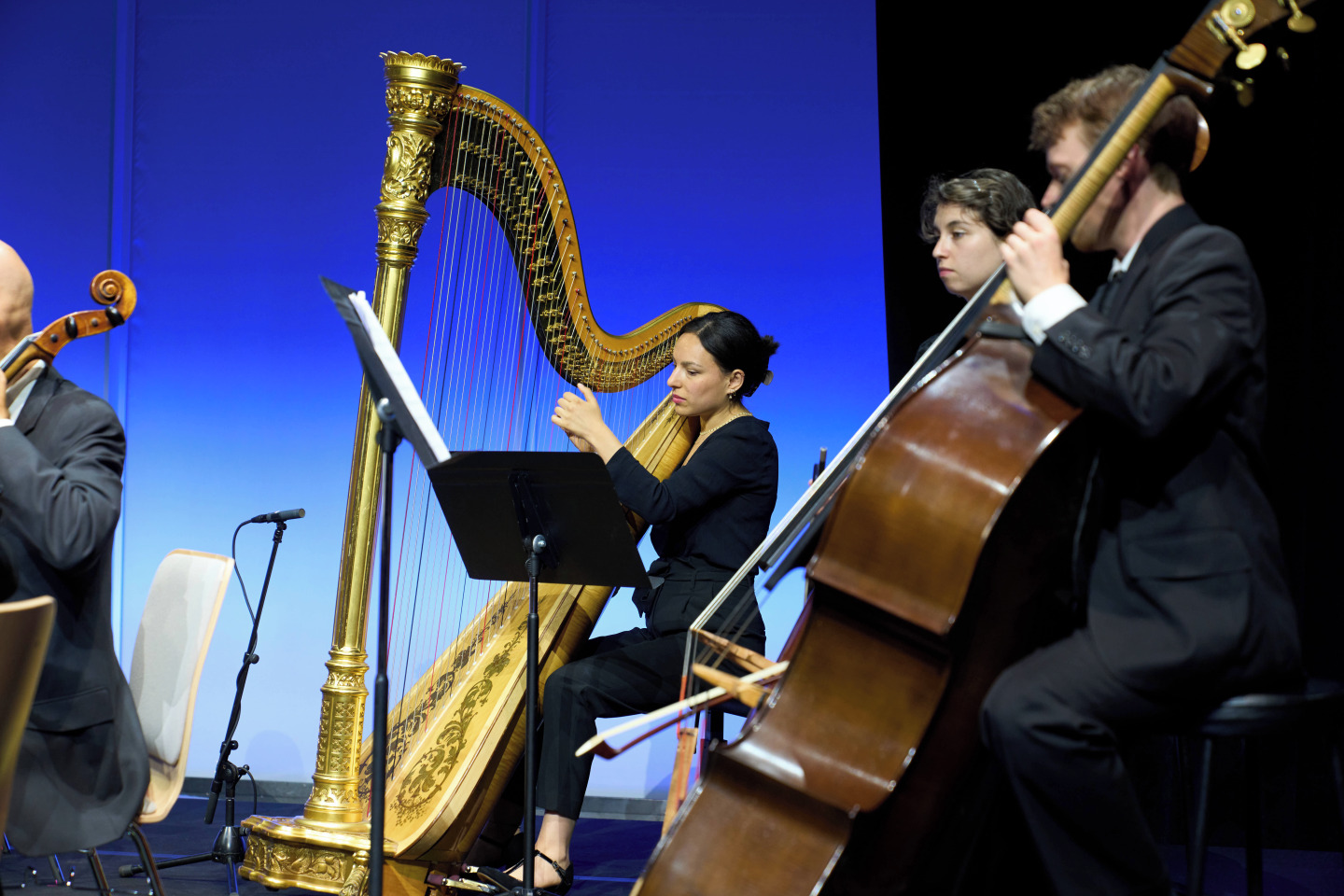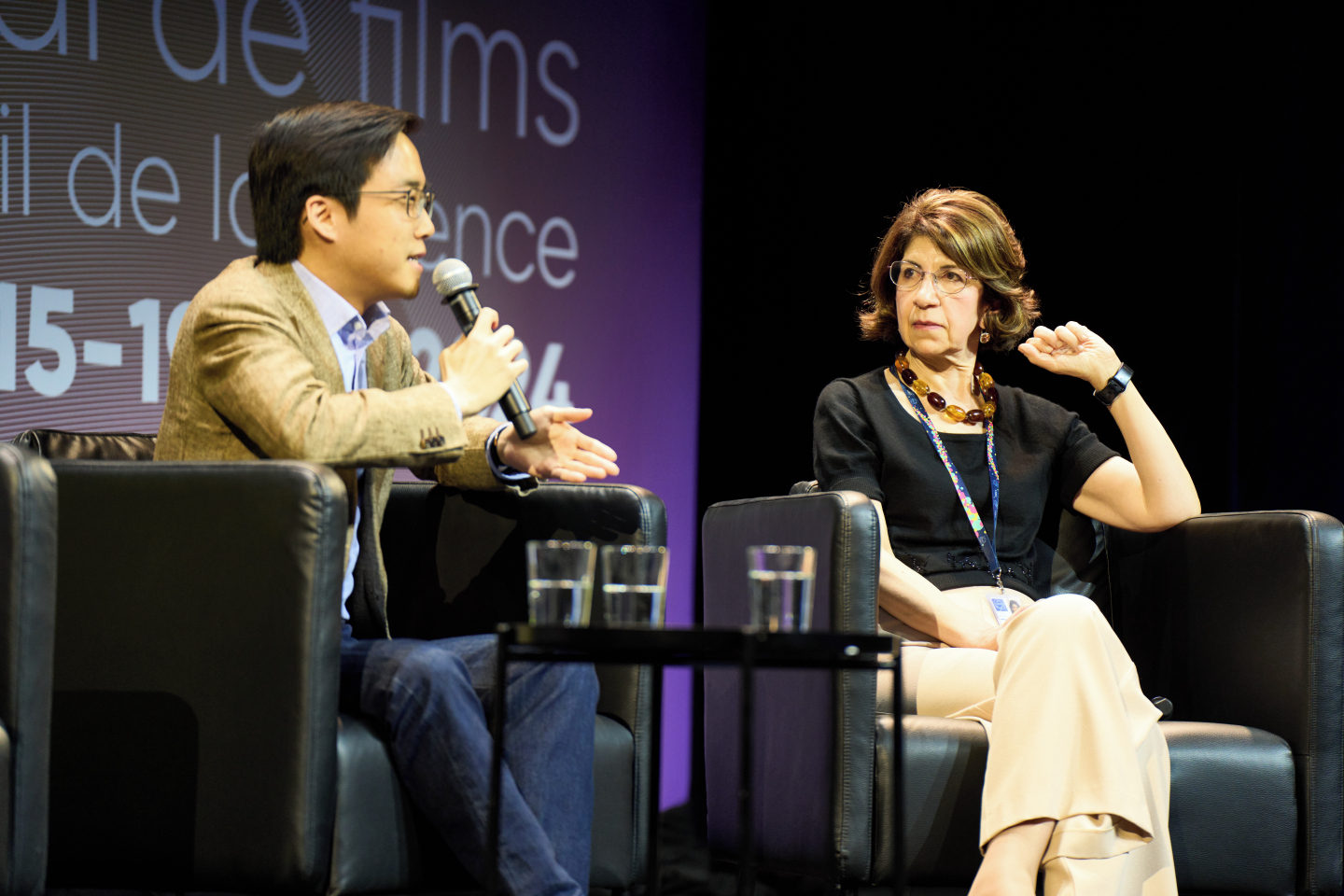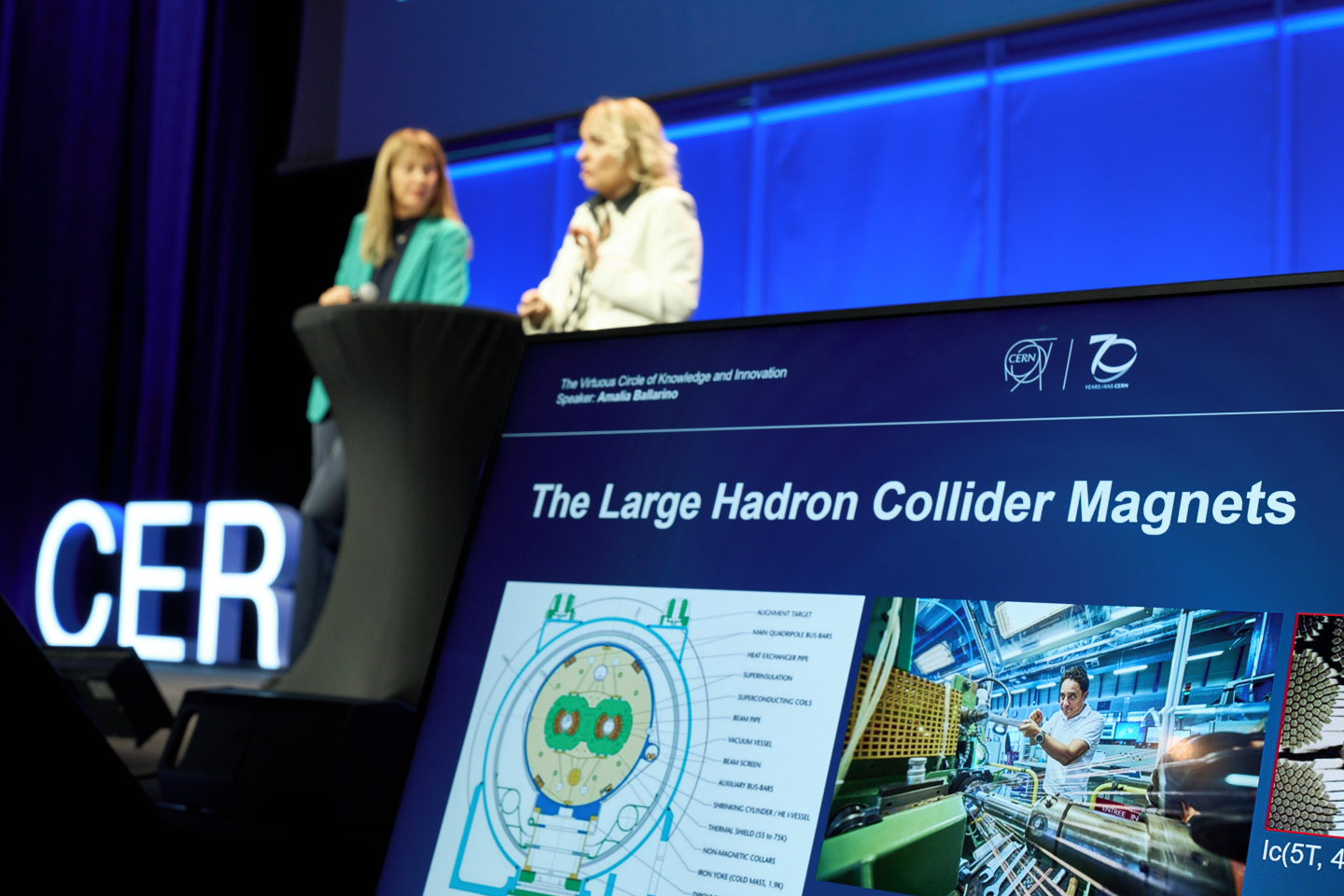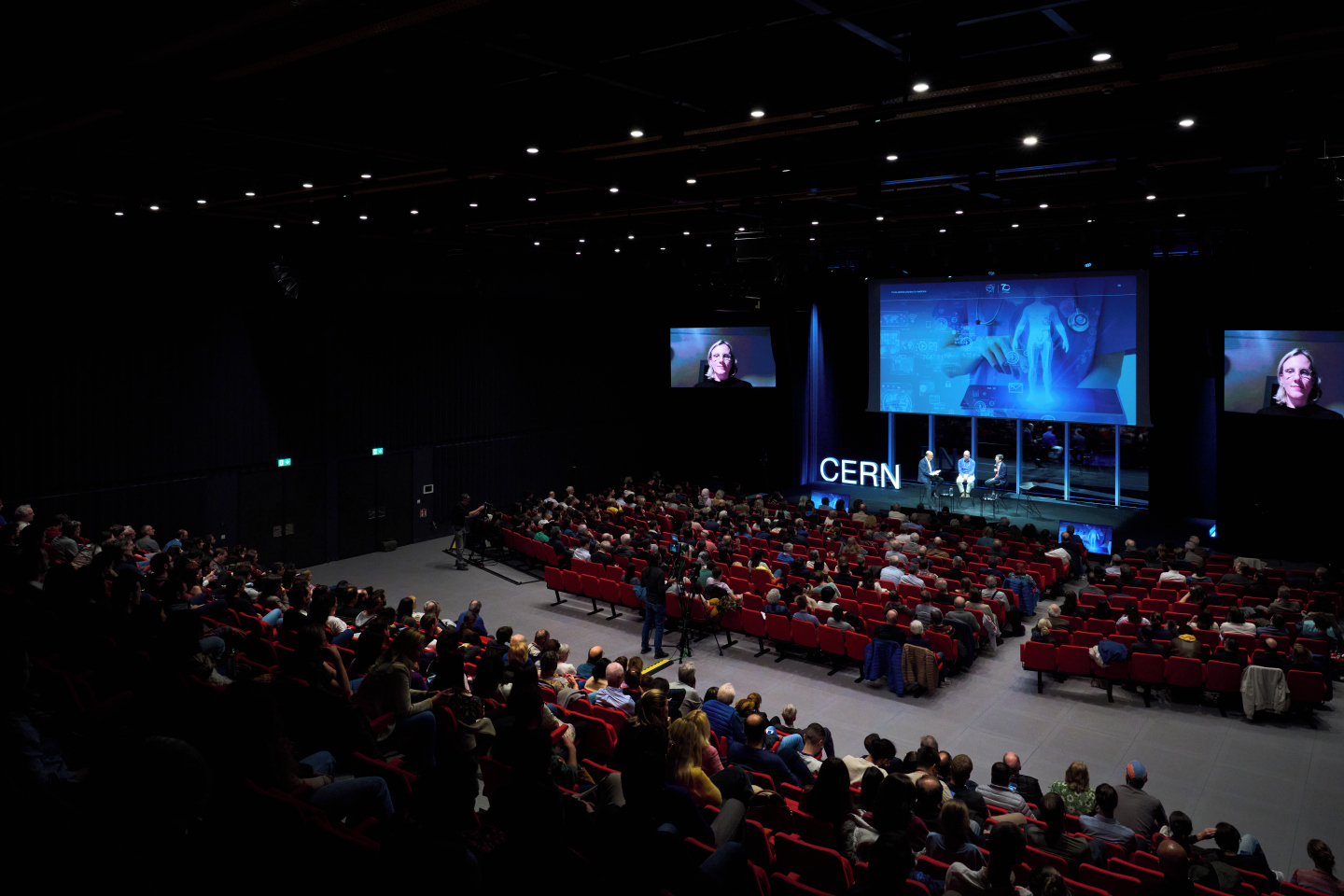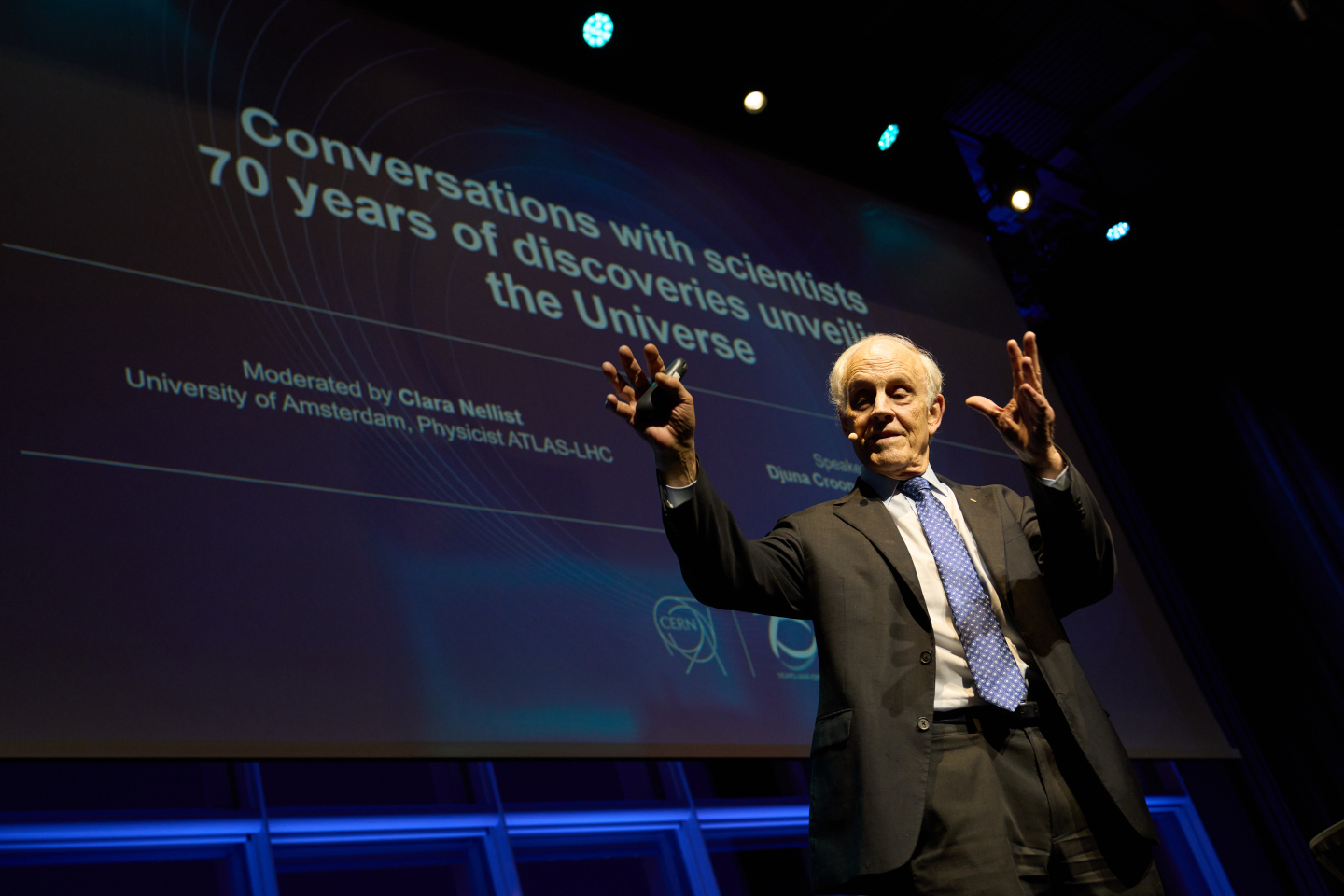Over the past century, physics has unveiled the fundamental laws of nature and traced the Universe’s evolution back to the Big Bang. Yet, many mysteries remain, and numerous secrets are still hidden within the cosmos.
At this sixth and final public event in the series celebrating CERN’s 70th anniversary, we explored the future of particle physics and the cutting-edge instruments set to revolutionise our understanding of the Universe’s most profound mysteries.
Renowned specialists guided you through the current limitations and breakthroughs in technology in three insightful parts:
- Advanced particle beam accelerators: we discovered how new accelerators achieving unprecedented energies and collision rates will open new frontiers in particle physics.
- Enhanced detectors: learn about the bigger, faster, and more sensitive detectors needed to capture rare phenomena and minute details.
- Intelligent computing systems: we explored the revolutionary computing infrastructures, powered by AI and novel technologies, essential for processing and analysing vast amounts of data.
Speakers
70 years of discovery
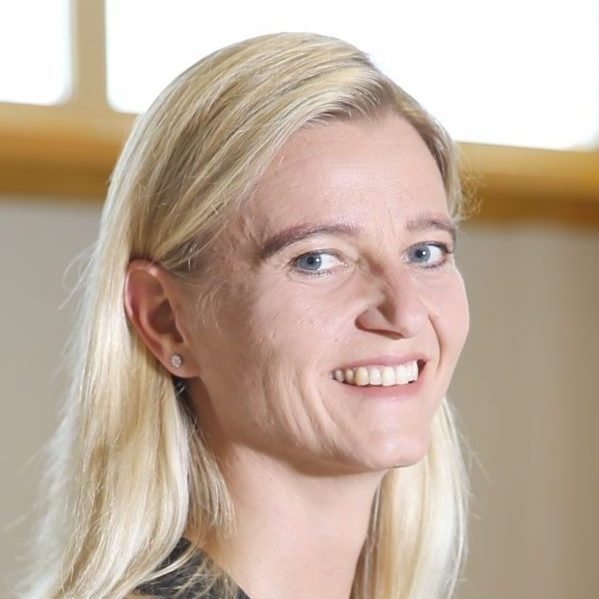
Edda Gschwendtner
Senior Physicist and Project Leader of AWAKE, Beams Department, CERN.
| Bio |
Edda Gschwendtner is a prominent physicist at CERN, renowned for her leadership in advanced accelerator research. She is the project leader of the Advanced Wakefield Experiment (AWAKE) at CERN, which is pioneering the use of plasma wakefield acceleration to achieve significantly higher particle energies than traditional methods. This innovative technique aims to reduce the size of future particle accelerators by generating accelerating fields up to a thousand times stronger than those produced by conventional radiofrequency cavities. Dr Gschwendtner’s academic journey began with her studies in physics, which led her to a distinguished career at CERN. Her work has involved significant contributions to several key particle physics experiments and projects, including various roles within the accelerator divisions. Under her guidance, AWAKE has made substantial progress – notably, the demonstration of proton-driven plasma wakefield acceleration – and preparations are under way for the next phases of the experimental programme. Dr Gschwendtner is also an advocate for scientific outreach, sharing her insights through various platforms, including TEDxCERN, where she explains complex concepts in accessible ways. Her dedication to pushing the boundaries of accelerator technology marks her as a leading figure in the field of particle physics and a key contributor to the future of high-energy physics research.
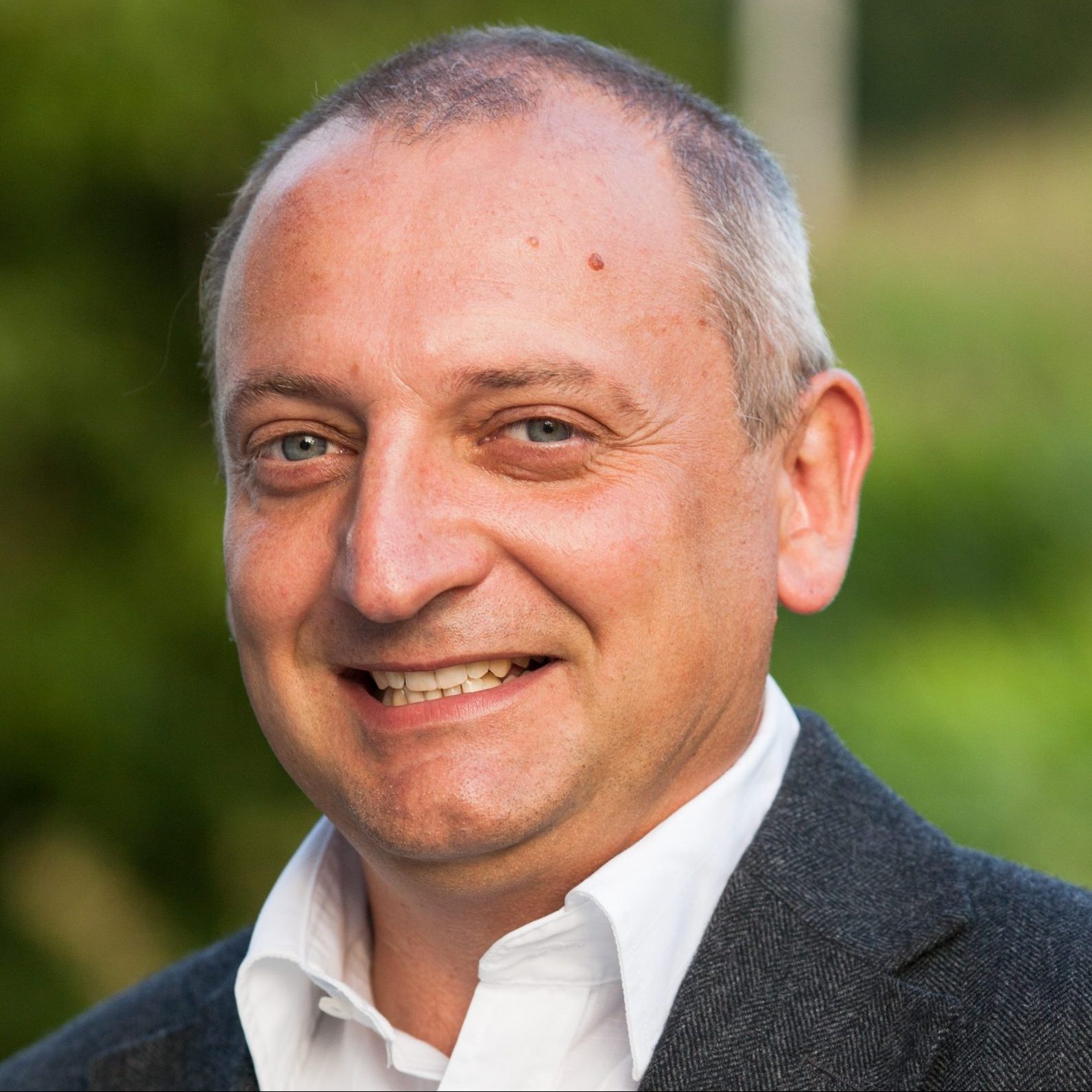
Mike Seidel
Accelerator Physicist, Center for Accelerator Science and Engineering, Paul Scherrer Institute.
| Bio |
Mike Seidel is a distinguished physicist specialising in particle accelerator physics. He received his PhD in accelerator physics from the University of Hamburg. In 1995, Seidel joined the SLAC National Accelerator Laboratory as a postdoctoral researcher, contributing to X-band accelerator structures. He subsequently worked at DESY in Hamburg, focusing on the particle physics collider HERA and various vacuum systems for accelerators. In 2006, Seidel moved to the Paul Scherrer Institute (PSI), where he served as Head of the Department of Accelerator Operation and Development. His work at PSI included overseeing the High Intensity Proton Accelerator (HIPA) and the PROSCAN proton therapy facility. In 2020, he became Head of the Division of Large Research Facilities at PSI and he joined the PSI Board of Directors. He was also appointed as a full professor at the École Polytechnique Fédérale de Lausanne (EPFL), where he leads the Particle Accelerator Physics Laboratory (LPAP). Seidel’s current research interests include R&D for future particle colliders with the LPAP team and energy efficiency of accelerator facilities. He has been actively involved in European programmes such as EuCARD-2, ARIES and I.FAST, focusing on sustainable accelerator technologies. Additionally, Seidel chairs the CERN Machine Advisory Committee (CMAC).
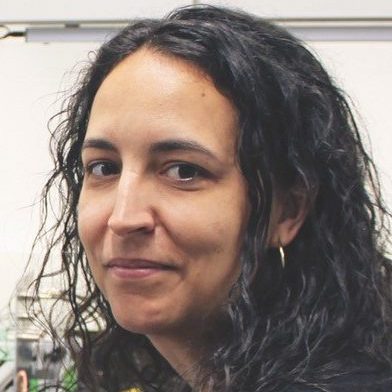
Roxanne Guenette
Professor of Particle Physics, Department of Physics and Astronomy, University of Manchester.
| Bio |
Roxanne Guenette is a distinguished physicist specialising in the study of neutrinos. She completed her undergraduate studies in physics at the University of Montreal and earned a PhD in high-energy astrophysics from McGill University. Her doctoral work focused on the VERITAS experiment, an array of telescopes designed to study very-high-energy gamma rays. After her PhD, Guenette continued her research as a postdoctoral associate at Yale University, where she shifted her focus to neutrinos. She later joined University of Oxford as an Ernest Rutherford fellow and then went on to Harvard University. She then moved to the University of Manchester, where she serves as a professor of particle physics. Her work involves developing and testing advanced neutrino detectors, particularly using noble element time projection chambers, to explore fundamental questions about the Universe, such as the matter–antimatter asymmetry produced by the Big Bang. Guenette is the co-spokesperson of the detector R&D collaboration for liquid detectors (DRD2). She is also a key member of the neutrinoless double beta decay NEXT experiment, where she serves as the Chair of the Institution Board. Her contributions to the field have been recognised with prestigious awards, including the Alfred P. Sloan Research Fellowship in 2021, which highlights her as a rising star in the scientific community.
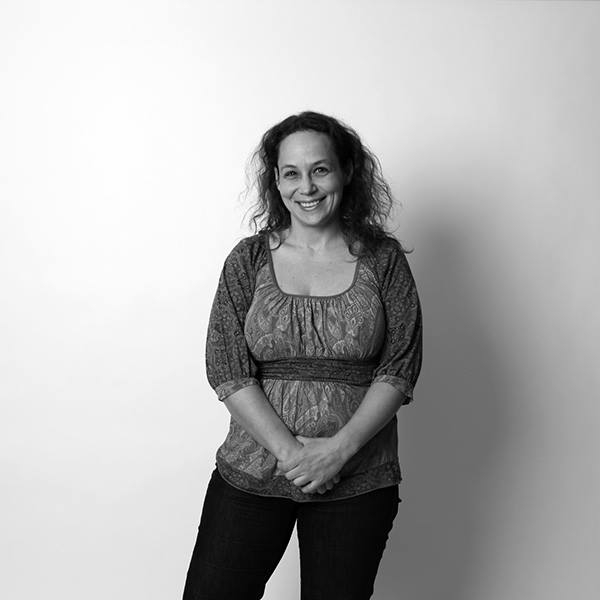
Petra Merkel
Senior Scientist and Detector R&D Coordinator, Fermilab.
| Bio |
Petra Merkel is a senior scientist at the Fermi National Accelerator Laboratory (Fermilab), a leading US Department of Energy research facility. She earned her PhD in 1999 from the University of Hamburg, where her research focused on heavy vector bosons using the H1 experiment at HERA. Following her doctorate, Dr Merkel worked as a postdoctoral researcher at Fermilab, contributing significantly to the CDF experiment at the Tevatron, particularly in the construction and operation of the silicon detector, and high-pT dilepton analyses. She later moved to Purdue University and joined the CMS experiment at CERN as a senior research scientist. At CERN, Dr Merkel played a pivotal role in the construction, commissioning and operation of the CMS forward pixel detector and became involved in Higgs physics, specialising in high-mass searches for additional Higgs bosons. She has led various groups, including the Pixel DQM and Tracker DPG groups, and managed parts of the Phase 1 upgrade of the forward pixel detector. Currently, Dr Merkel is the Level 2 manager for the Outer Tracker upgrade for the High-Luminosity Large Hadron Collider (HL-LHC). In addition to her work at CMS, she coordinates detector R&D at Fermilab and participates in national and international research panels and collaborations.

Werner Riegler
Technical Coordinator of ALICE and leader of the experiment studies for the Future Circular Hadron Collider, Experimental Physics department, CERN.
| Bio |
Werner Riegler is an experimental particle physicist at CERN. Over the past 30 years, he has been involved in the development, construction, installation, operation and upgrades of detectors at the LHC. From 1995 to 2000, he worked on the development of the ATLAS detector, first as a PhD student at the Vienna University of Technology and then as a postdoctoral researcher at Harvard University. In 2000, he joined the LHCb collaboration as a CERN staff scientist, focusing on the development of the experiment’s muon system. In 2004, Werner joined the technical coordination team of the ALICE experiment, overseeing the installation of the detector. With the start of LHC operations in 2009, he assumed the role of technical coordinator for the ALICE experiment. Since 2015, Werner has also been coordinating detector and experiment studies for the FCC-hh accelerator. Beyond his work on large-scale detectors, Werner has a keen interest in the fundamentals of particle detection and has made numerous contributions to topics such as detector simulation, signal theory and the fundamental limits of measurement accuracy.

Cristina Botta
Physicist, Experimental Physics department, CERN.
| Bio |
Cristina Botta is an experimental particle physicist and a member of the CMS experiment collaboration at the CERN LHC since 2008. She received her PhD in physics in 2011 from the University of Torino. Following her experience as a research fellow and research staff physicist at CERN, in 2019, she became an assistant professor in the Physics Department of the University of Zurich and was awarded a Swiss National Science Foundation PRIMA grant to create her own research team within the department. Since September 2023, she has been back at CERN as a research scientist in the Experimental Physics department. For many years, her research focused on developing data analysis strategies for the discovery of the Higgs boson and then for the measurement of its properties. In 2015, when the LHC started to provide higher energy collisions to the experiments, her research interest shifted towards direct searches for dark matter, and she coordinated the CMS analysis group working on supersymmetry (SUSY) searches in leptonic final states. Together with her team, she is currently carrying out searches for SUSY in compressed mass spectra, an experimentally challenging region of the parameter space. With the upcoming High-Luminosity LHC project, in 2017 she joined the effort to upgrade CMS L1 trigger. She is currently deputy project manager for the L1 trigger project, coordinating the activities for developing new trigger algorithms and studying their performance to steer the final decisions on the design of the new trigger system. Since 2023, she has also been co-leading the implementation within the CMS experiment of the newly launched Next Generation Triggers project at CERN.
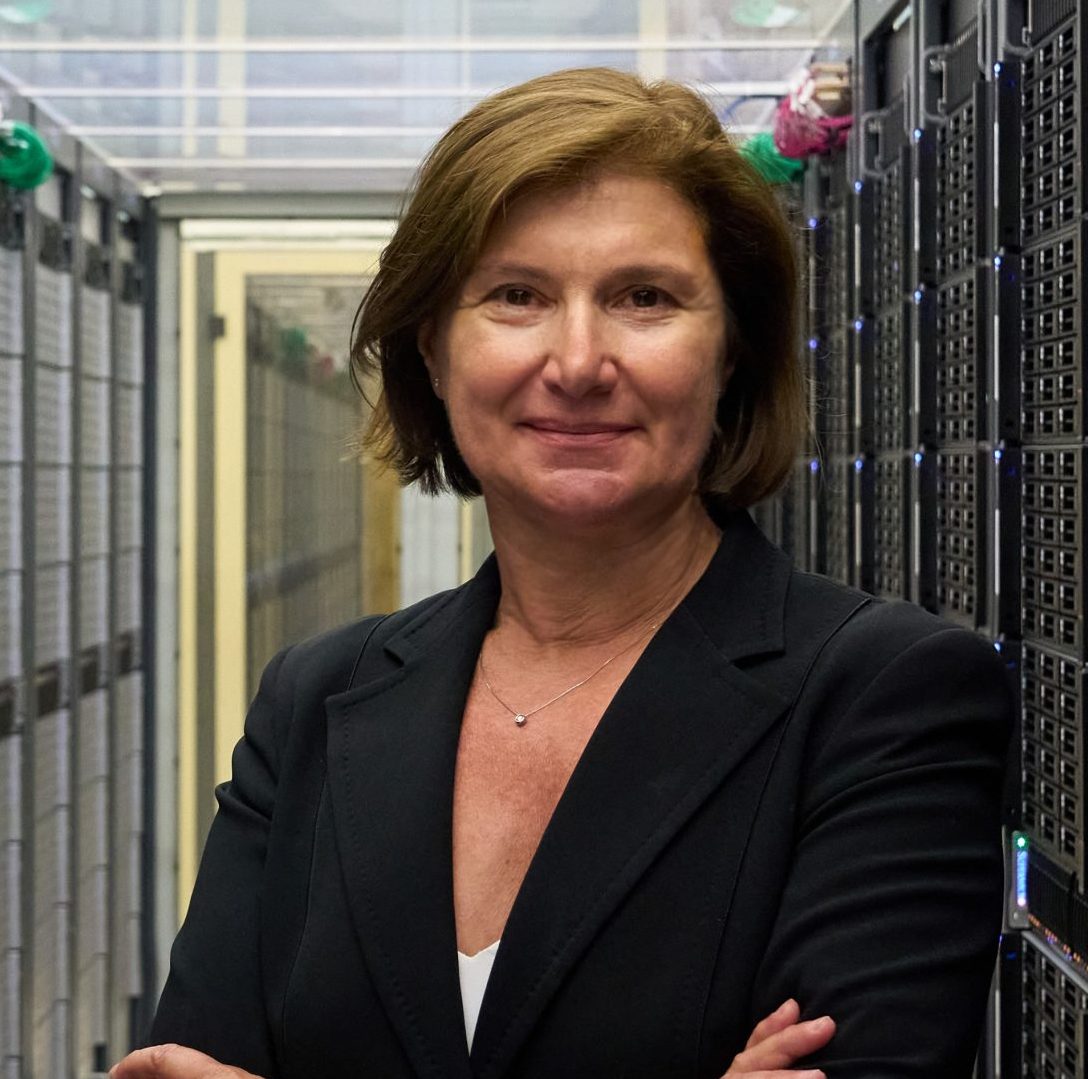
Maria Girone
Head of CERN openlab, IT department, CERN.
| Bio |
Maria Girone is the Head of CERN openlab. Maria has a PhD in particle physics. She also has extensive knowledge in computing for high-energy physics experiments, having worked in scientific computing since 2002. Maria has worked for many years on the development and deployment of services and tools for the Worldwide LHC Computing Grid (WLCG), the global grid computing system used to store, distribute, and analyse the data produced by the experiments on the Large Hadron Collider (LHC). Maria was the founder of the WLCG operations coordination team, which she also previously led. This team is responsible for overseeing core operations and commissioning new services. Throughout 2014 and 2015, Maria was the software and computing coordinator for one of the four main LHC experiments, called CMS. She was responsible for about seventy computing centres on five continents, and she managed a distributed team of several hundred people. From 2016 to early 2023, Maria was CERN openlab CTO. Prior to joining CERN, Maria was a Marie Curie fellow and research associate at Imperial College London. She worked on hardware development and data analysis for another of the LHC experiments, called LHCb, as well as for an experiment called ALEPH, which was built on the accelerator that preceded the LHC.
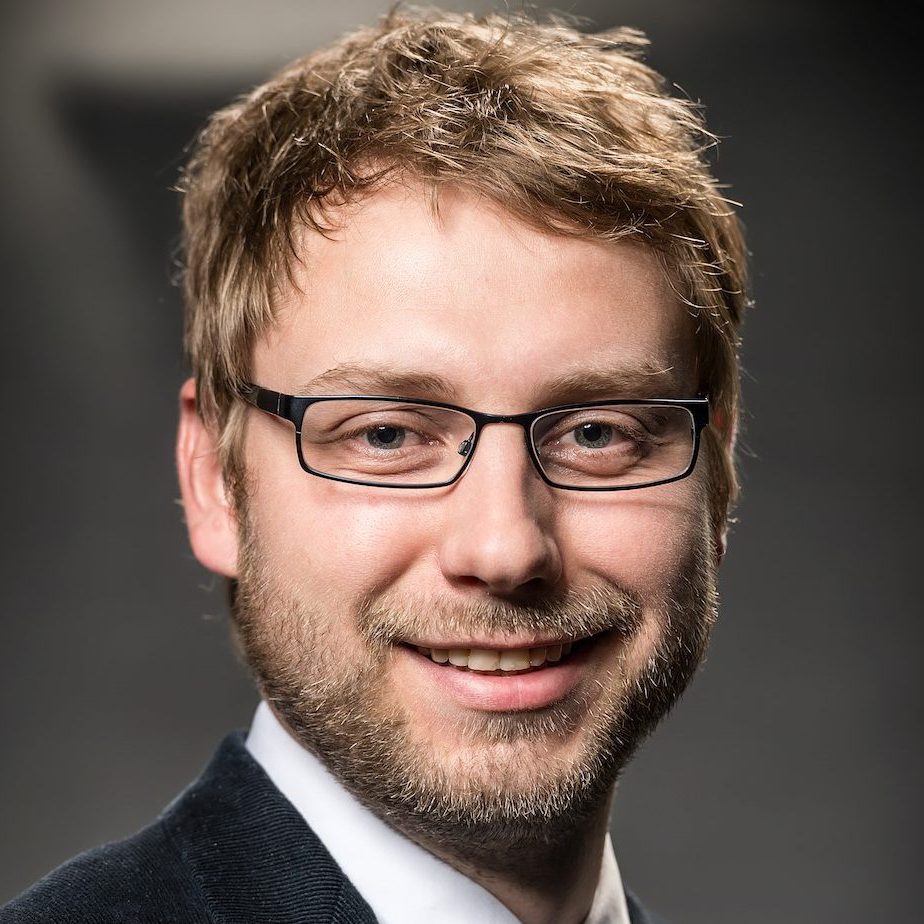
Andreas Lintermann
Coordinator of the European Center of Excellence in Exascale Computing RAISE and leader of the Simulation and Data Laboratory “Highly Scalable Fluids & Solids Engineering” at the Jülich Supercomputing Centre, Forschungszentrum Jülich.
| Bio |
Andreas Lintermann is a postdoctoral researcher and group leader of the Simulation and Data Laboratory “Highly Scalable Fluids & Solids Engineering” at the Jülich Supercomputing Centre, Forschungszentrum Jülich. He is the coordinator of the European Center of Excellence in Exascale Computing ‘‘Research on AI- and Simulation-Based Engineering at Exascale’’ (CoE RAISE). He leads the activities in the EuroCC2, SPECTRUM and interTwin projects from Jülich’s side, and he is also involved in the industry relations team of the institute. His research focuses on high-performance computing, heterogeneous hardware, modular supercomputing, artificial intelligence, quantum computing, biofluid mechanics, lattice Boltzmann methods, high-scaling meshing methods and efficient multi-physics coupling strategies.
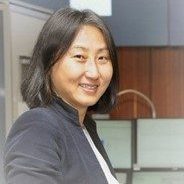
Mei Bai
Accelerator Physicist, SLAC National Accelerator Laboratory, one of the 17 US.
| Bio |
Mei Bai is the Accelerator Directorate Deputy Director of Science at the SLAC National Accelerator Laboratory. Prior to joining SLAC, she was Head of the Accelerator Operations Division at GSI Helmholtzzentrum für Schwerionenforschung, part of the Helmholtz Association of German Research Centres. Prior to GSI, she served as Director of the Large-Scale Nuclear Physics Equipment (IKP-4) at Forschungszentrum Jülich, also in Germany. During her time in Germany, she also supervised PhD students and taught accelerator physics at Universität Bonn in the Department of Physics and Astronomy. Prior to her move to Germany, Mei Bai was a tenured scientist at Brookhaven National Laboratory (BNL). She joined BNL in 1999, one year before the Relativistic Heavy Ion Collider (RHIC) was commissioned, and she was heavily involved in RHIC operations in the heavy-ion and polarized-proton programmes. She made significant contributions in establishing high-energy polarized-proton collisions at RHIC, the only user facility for this kind of research in the world. Her research ranges from spin dynamics to optical diagnostics and corrections. Mei Bai has served on several advisory committees for facilities and scientific programmes, such as the National Scientific Advisory Committee, which advises the United States Department of Energy, and the Fermilab Accelerator Advisory Committee. Currently, she serves on the CERN Machine Advisory Committee and chairs the ESS Technical Advisory Committee.
